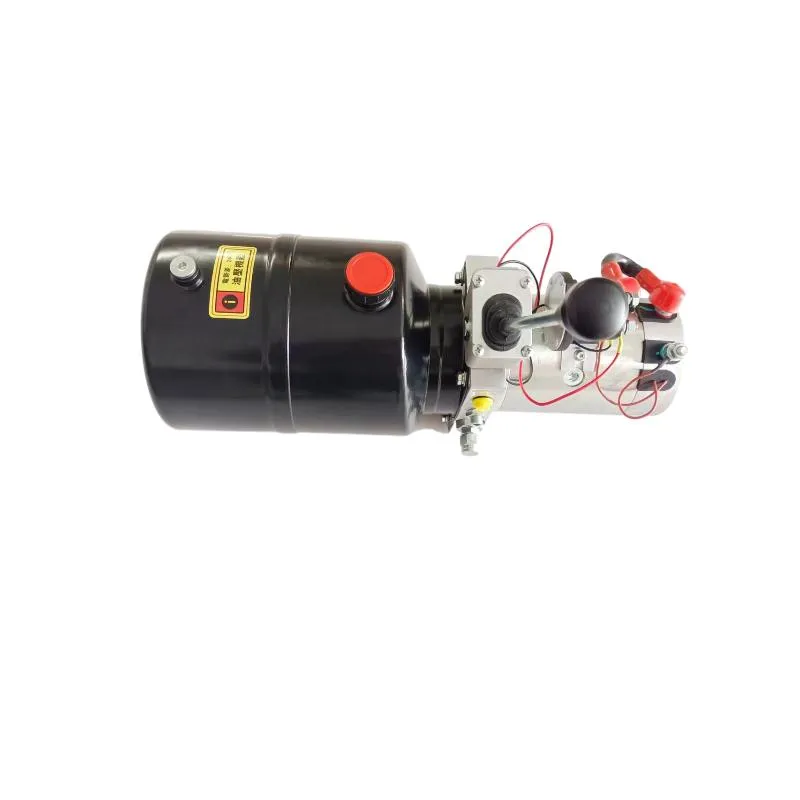Nov . 15, 2024 19:04 Back to list
telescopic hydraulic cylinder product
Understanding Telescopic Hydraulic Cylinders
Telescopic hydraulic cylinders are vital components widely used in various industrial applications, ranging from construction machinery to agricultural equipment. Their unique design and functionality make them essential for tasks that require substantial lifting and pushing forces within a compact space.
What Are Telescopic Hydraulic Cylinders?
Telescopic hydraulic cylinders consist of multiple layers of cylinders, or sections, that slide within each other, allowing the cylinder to extend and retract significantly beyond the length of a single section. This telescopic action enables these cylinders to provide long stroke lengths while occupying minimal space when retracted. Typically, the inner sections are progressively smaller in diameter, allowing for a smooth and efficient operation.
How They Work
The operation of telescopic hydraulic cylinders revolves around hydraulics, a technology that utilizes pressurized fluid to produce mechanical motion. When hydraulic fluid enters the cylinder, it exerts pressure on the internal surfaces of the sections, causing them to extend. By varying the flow and pressure of the hydraulic fluid, operators can control the speed and force of the extension and retraction process.
One of the standout features of telescopic cylinders is their ability to generate high force in a compact design. For instance, a telescopic cylinder can produce the same lifting capacity as a longer conventional cylinder while being considerably shorter when not in use. This characteristic is particularly advantageous in applications where space is limited, such as in dump trucks, where the cylinder must efficiently lift the cargo box while fitting within tight confines.
Applications
Telescopic hydraulic cylinders are commonly found in a variety of industries
1. Construction In the construction sector, they are often used in cranes, excavators, and material handlers. Telescopic cylinders provide the necessary reach and lifting capability for moving heavy materials and equipment.
telescopic hydraulic cylinder product

2. Agriculture Farmers utilize these cylinders in machinery such as loaders and tractors for lifting and tilting equipment. Their ability to extend and retract efficiently makes them ideal for tasks like lifting hay bales and other heavy loads.
3. Transportation Dump trucks and trailers rely on these cylinders for tipping and unloading cargo. The compact retraction allows for easier transport and storage when not in use.
4. Manufacturing In manufacturing settings, telescopic cylinders are used in assembly lines and equipment that require precise movements over limited distances.
Advantages of Telescopic Hydraulic Cylinders
1. Space Efficiency The primary advantage of telescopic hydraulic cylinders is their compact design. They allow for significant extension without occupying extra space, making them ideal for various applications.
2. High Load Capacity Telescopic designs can provide substantial lifting forces, making it feasible to handle heavy loads while maintaining manageable sizes.
3. Flexibility Their versatile nature allows them to be used in various configurations, adapting to the specific needs of different industries.
4. Reduced Weight Compared to traditional multi-stage cylinders, telescopic cylinders often feature lighter designs, which reduces the overall weight of the machinery they are integrated into.
Conclusion
In summary, telescopic hydraulic cylinders are indispensable tools that enhance the efficiency and capability of various machines across multiple industries. Their combination of compact design, high strength, and versatility makes them a preferred choice for applications that demand powerful and precise movement. As technology continues to advance, we can expect to see even more innovations in hydraulic cylinder design and functionality, further expanding their potential applications in the future.
-
High-Precision [90/105-50-180-480] Industrial Component | Durable & Reliable
NewsAug.27,2025
-
High-Performance Set of 50/60-45-290 471 | Durable & Reliable Components
NewsAug.26,2025
-
Efficient Pallet Truck Power Units - Reliable Hydraulic Systems
NewsAug.25,2025
-
Premium Set of 50/60-45-290 471 Parts | High Performance
NewsAug.24,2025
-
Efficient & Reliable Double Acting Power Unit | Hydraulic Solutions
NewsAug.23,2025
-
1.5 Ton Turbocharged Cylinder 80/95-40/60-35-124 | High Performance
NewsAug.22,2025
